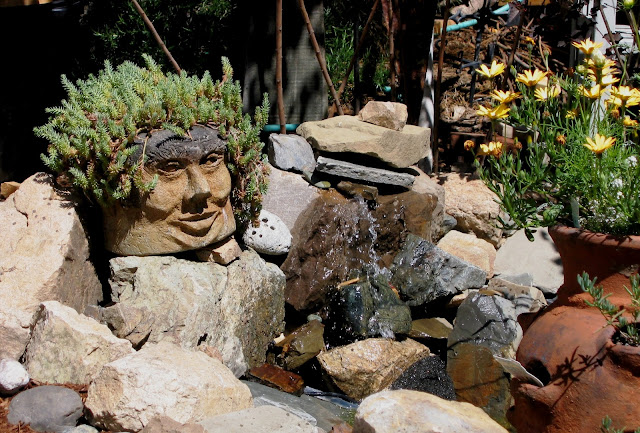Under One Roof
[Throughout the book there are chapters dedicated to Worth's identical twin brother, Had (short for "Hadrian), who is on the last leg of a solo circumnavigation of the world on his sailboat, Orbital Matchbox. Although I'm not sure about the exact percentage of the book that will be dedicated to Had -- at this point in time, this is primarily Worth's story -- there are frequent interruptions in the narrative as he seems to vie for supremacy of the story.]
Seven days after the
storm, I saw a boy sitting on the bow of my sailboat.
He sat slumped into the
bow pulpit, his back to me, his bare feet stretching down to the water. He had small
pebbles in his hand, which he dropped one-by-one into the water, each glistening
stone meeting the surface with a tiny splash. From where I stood, I could see
the stones sinking in the water, disappearing into the murkiness of the Pacific
brine a few feet below the surface. I watched my visitor for a while,
hypnotized by the steady rhythm of the dropping stones.
All about him was
evidence of the damage the sea had inflicted on my boat five days ago in a
punishing storm that almost pulled me under. My mast was gone. In its place was
a jury-rigged spinnaker pole, standing just twelve feet proud of the deck –
twenty-five feet shorter than my fugitive mast – and a handkerchief-sized storm
jib, which propelled me slowly towards the weeping horizon. Gouges crisscrossed
my fiberglass deck, one jagged scar leading to a hole that penetrated right
through into the compartment below where the unseated mast had struck before flopping
overboard.
I wasn’t alarmed by my
visitor, just curious. I looked around to see if there was
anything nearby – a ship, a raft, an uncharted island – that might explain his
provenance, but there was nothing but water in every direction, as far as I
could see. I spun completely around, confirming what I suspected: except for my
visitor here, I was alone, as far from another human being as was possible on
this planet.
His appearance wasn’t a
complete anomaly. Others have visited me over the preceding eighteen months of
my journey, especially at times when I’m severely sleep-deprived. It’s a fairly
well documented occurrence, these sorts of spectral visions, particularly among
solo-sailors. After weeks alone at sea, the rules that we all abide by in
society begin to seem restrictive, even quaint, as our dreams and fantasies
begin to slosh out into our daylight hours. Typically, the visitors hail from
my past; family members with unfinished business, people I’ve wronged or,
often, those who simply want to contribute to or be a part of this great
adventure of mine. There were days in the Indian Ocean – earlier in my trip
(over a year ago!) – when my voice grew hoarse from conversing with these
visitors, each with a lesson to impart, a question to ask, a bone to pick, or
just weary and looking for a reprieve from the vast emptiness of the desert
sea. I realize that the hoarseness could also have come from the intense heat
and scalding sun of the equator, combined with three weeks of ever-diminishing
water rations, as I made my way slowly towards South Africa and the Cape of
Good Hope. It hasn’t escaped my notice that I’m usually visited at times when
I’m in distress – physically, mentally or both – such as now when I’m operating
on near-starvation rations and haven’t seen another human for over a
month-and-a-half.
This afternoon was
overcast and drizzling off and on, no surprise here deep down in the frigid and
storm-tossed Southern Ocean, but the wind had abated a few hours before, which was unusual, leaving my boat, Orbital Matchbox, bobbing and clanking
in the residual chop, as noisy as a packhorse hauling pots and pans down a
rutted mountain trail, as Aeolus drew in a deep breath in preparation for the
next torturous blow.
I watched my visitor
for a while, curious if he would make the first move: a glance, a nod, a subtle
wave of the hand or some other summoning gesture. But he attempted no
connection, his body slumped over, staring down into the water, as fixed as my
former mast (now on the ocean floor), except for his feet, which dangled
loosely over the edge of the hull and the seemingly endless store of pebbles he
plunked into the water. He wore a rain slicker, as I did, his hood pulled up
over his head, his face obscured deep in its shadowy recess. It was late
afternoon and, although in the twilight I couldn’t make out who he was, I
guessed by his size that he was a child.
I decided to make the
first move.










































